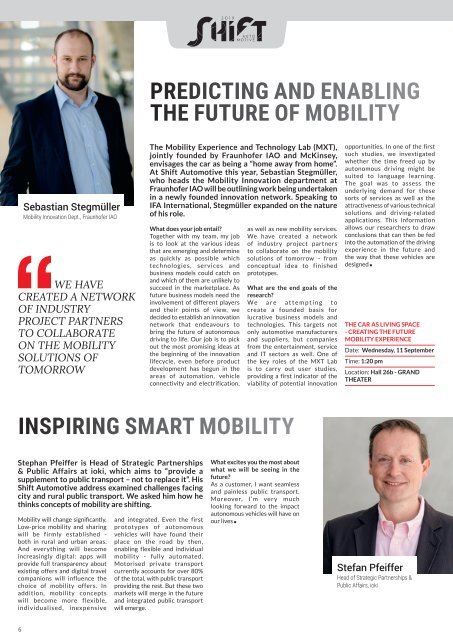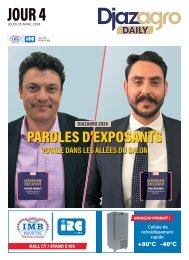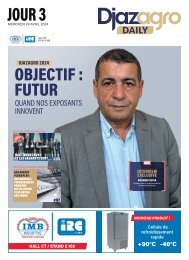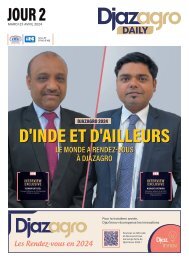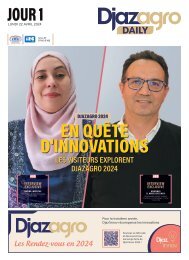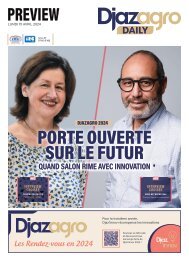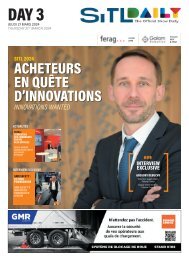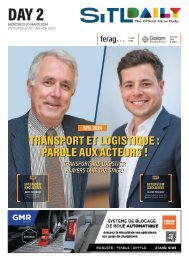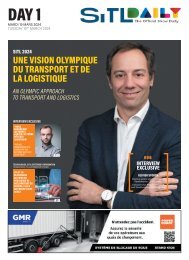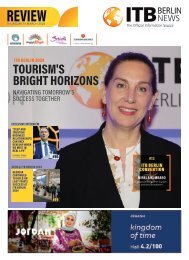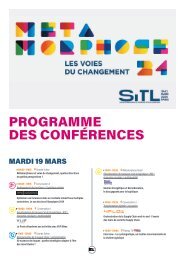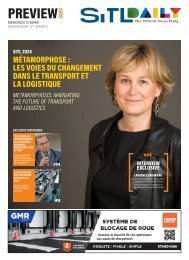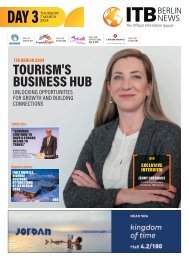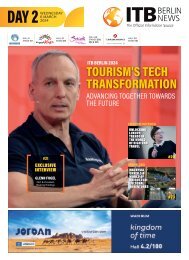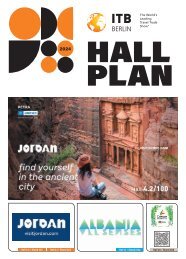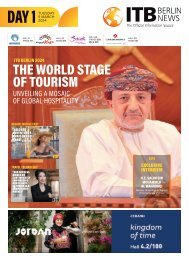Create successful ePaper yourself
Turn your PDF publications into a flip-book with our unique Google optimized e-Paper software.
PREDICTING AND ENABLING<br />
THE FUTURE OF MOBILITY<br />
Sebastian Stegmüller<br />
Mobility Innovation Dept., Fraunhofer IAO<br />
WE HAVE<br />
CREATED A NETWORK<br />
OF INDUSTRY<br />
PROJECT PARTNERS<br />
TO COLLABORATE<br />
ON THE MOBILITY<br />
SOLUTIONS OF<br />
TOMORROW<br />
The Mobility Experience and Technology Lab (MXT),<br />
jointly founded by Fraunhofer IAO and McKinsey,<br />
envisages the car as being a “home away from home”.<br />
At Shift Automotive this year, Sebastian Stegmüller,<br />
who heads the Mobility Innovation department at<br />
Fraunhofer IAO will be outlining work being undertaken<br />
in a newly founded innovation network. Speaking to<br />
<strong>IFA</strong> <strong>International</strong>, Stegmüller expanded on the nature<br />
of his role.<br />
What does your job entail?<br />
Together with my team, my job<br />
is to look at the various ideas<br />
that are emerging and determine<br />
as quickly as possible which<br />
technologies, services and<br />
business models could catch on<br />
and which of them are unlikely to<br />
succeed in the marketplace. As<br />
future business models need the<br />
involvement of different players<br />
and their points of view, we<br />
decided to establish an innovation<br />
network that endeavours to<br />
bring the future of autonomous<br />
driving to life. Our job is to pick<br />
out the most promising ideas at<br />
the beginning of the innovation<br />
lifecycle, even before product<br />
development has begun in the<br />
areas of automation, vehicle<br />
connectivity and electrification,<br />
as well as new mobility services.<br />
We have created a network<br />
of industry project partners<br />
to collaborate on the mobility<br />
solutions of tomorrow – from<br />
conceptual idea to finished<br />
prototypes.<br />
What are the end goals of the<br />
research?<br />
We are attempting to<br />
create a founded basis for<br />
lucrative business models and<br />
technologies. This targets not<br />
only automotive manufacturers<br />
and suppliers, but companies<br />
from the entertainment, service<br />
and IT sectors as well. One of<br />
the key roles of the MXT Lab<br />
is to carry out user studies,<br />
providing a first indicator of the<br />
viability of potential innovation<br />
opportunities. In one of the first<br />
such studies, we investigated<br />
whether the time freed up by<br />
autonomous driving might be<br />
suited to language learning.<br />
The goal was to assess the<br />
underlying demand for these<br />
sorts of services as well as the<br />
attractiveness of various technical<br />
solutions and driving-related<br />
applications. This information<br />
allows our researchers to draw<br />
conclusions that can then be fed<br />
into the automation of the driving<br />
experience in the future and<br />
the way that these vehicles are<br />
designed<br />
THE CAR AS LIVING SPACE<br />
- CREATING THE FUTURE<br />
MOBILITY EXPERIENCE<br />
Date: Wednesday, 11 September<br />
Time: 1:20 pm<br />
Location: Hall 26b - GRAND<br />
THEATER<br />
INSPIRING SMART MOBILITY<br />
Stephan Pfeiffer is Head of Strategic Partnerships<br />
& Public Affairs at ioki, which aims to “provide a<br />
supplement to public transport – not to replace it”. His<br />
Shift Automotive address examined challenges facing<br />
city and rural public transport. We asked him how he<br />
thinks concepts of mobility are shifting.<br />
Mobility will change significantly.<br />
Low-price mobility and sharing<br />
will be firmly established -<br />
both in rural and urban areas.<br />
And everything will become<br />
increasingly digital: apps will<br />
provide full transparency about<br />
existing offers and digital travel<br />
companions will influence the<br />
choice of mobility offers. In<br />
addition, mobility concepts<br />
will become more flexible,<br />
individualised, inexpensive<br />
and integrated. Even the first<br />
prototypes of autonomous<br />
vehicles will have found their<br />
place on the road by then,<br />
enabling flexible and individual<br />
mobility - fully automated.<br />
Motorised private transport<br />
currently accounts for over 80%<br />
of the total, with public transport<br />
providing the rest. But these two<br />
markets will merge in the future<br />
and integrated public transport<br />
will emerge.<br />
What excites you the most about<br />
what we will be seeing in the<br />
future?<br />
As a customer, I want seamless<br />
and painless public transport.<br />
Moreover, I’m very much<br />
looking forward to the impact<br />
autonomous vehicles will have on<br />
our lives<br />
Stefan Pfeiffer<br />
Head of Strategic Partnerships &<br />
Public Affairs, ioki<br />
6


